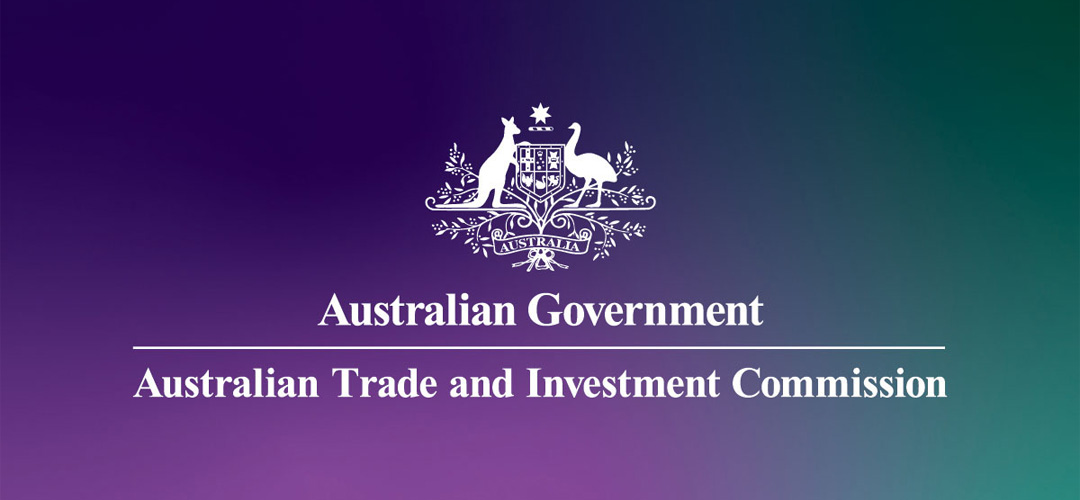Submission for Austrade Strategic Review
Prepared by Stuart Smith
EMDG Consultant
Experience is a keyword in understanding what has gone before and what can come. I have dealt with over 300 exporters in my time as an EMDG consultant, across a wide range of industries, organisational structures, business sizes, and unique marketing ideas.’ After seeing the first attempt at “reforming” the EMDG, it would appear that Austrade has lost all its experience, forgetting the past (what works) and forgoing any idea of what can be successfully made for the future. This is obvious from the loss of personnel, the complete failure of the changes, and the lack of any real solutions to the problems produced by those changes.
The logic seems to be defied, they discuss the integrity of the system, where there have been no problems, and then reduce the audit process to a joke, they propose changes to reduce applicants, having already re-admitted the greatest brake on applications, the sales test. They look to politicise a process that has been bipartisan for 50 years.
They take a system that has been crafted and refined over years to allow exporters to apply their unique understanding of their business, their customers, their logistics, their financing, and the ultimate success of their business, proven in the report after report to want to micro-manage every aspect of a business journey to export success.
The current government direction and Austrade’s acquiescing have taken a program that was agnostic to business type, business model, and target market, with reasonable thresholds to a level where every aspect of a business decision is being interfered with by the government. If the program was corrupted or did not give value for money then change might have been warranted and the proposed changes could be considered, however, these are purely ideological changes and assume that this program should become a diplomatic tool rather than what it has always been, a business program that increased our export footprint, created jobs and income opportunity across every small business in Australia.
Consultation
Unfortunately, I think this submission is futile as decisions have already been made that indicate that only minor changes on the edge of the program will be undertaken. Why, I think that, Austrade behaviour for the last three years, the announcements of government prior to the review paper, and the responses given in Senate Estimates.
If you are serious in considering the reasoned responses then read on, however, if you agree that little will change from pre-determined modifications decided by Austrade then not only will I have wasted my time but you will have as well.
If Austrade had consulted genuinely then there would not be the need for three reviews in three years.
There are a number of elements to this response, trying to follow the review document released by Austrade as a guide.
The EMDG was never set up to follow government trade and other priorities, it was a bipartisan attempt to boost Australian exports from small business, across as many sectors and geographies as possible. A few key limitations were imposed, illegal products, sanctioned countries, and nonmarketing costs. Government has the right to dictate all aspects of how they carry out their programs but do not confuse this new strategy as something that governments (Liberal or Labor) have always considered. This model has always proved successful and government interference in market forces has always failed.
Leave the program agnostic to all variations, it should not be a diplomatic tool. For every country included in the new strategy that feels warm and fuzzy because they are included, we will have potentially offended those that are excluded. This has already by expressed by diplomats from countries I have been informed about.
Diversification is the buzzword most often thrown about in the document and discussion. This is an Orwellian definition of diversification where more than 80% of those countries/ populations/markets currently included are to now be excluded and those industries/businesses that are eligible will be reduced. If any market or business in Australia was currently excluded there would be some argument to use the word diversification however none of these exclusions occur.
You have established a straw man argument that the countries to be included are a binary choice between these and the markets to be excluded, as though unless we exclude markets, there is no chance that exporters will consider the markets to be included. It is not a binary choice, currently, all markets are available. Therefore, exporters will go where the best opportunity for marketing their product exists. If that is Asia that is where they will go. However, when the demography of the countries to be included (Timor Leste, Tuvalu, Burma for instance) do you really think there is a market for $100,000 bridal gowns, or advanced robotics, or games for Xboxes. Even if there is a market for the product the potential value of that is pitiful compared to the Americas, Africa, Eastern or Western Europe. If these were the best market then exporters would be there, they are not prevented from going there under the current system, nor are they prevented from taking any product they can sell.
Level of Funding
To state the obvious, funding has decreased since 2000, from $ 200 million to $110 million while the size of Australia has grown, marketing costs have increased and the contribution to GDP by SME exporters has grown. However, there is a problem with the number of applicants and their grant size is an issue, but the solutions proposed by Austrade are ridiculous. The main reason for the increase in applicants was a) the sales test was removed b) it was expected payments would be upfront, c) marketing for the new scheme was huge, and c) consultants were able to convince clients it was worth going into the program. It was nothing to do with the “simplicity of the changes, consultants’ share of applications went up by 25% and has remained around the same for each round of applications.
Ways that the program can be repaired.
- Re-introduce the Sales Test
- Statistics from the “old” scheme will show how applications fell off after claim 2, these were still successful exporters but not growing sales at 20% year on year. b. This will have a great effect on applications
- Harden the Australian content Rules
- Make product to be manufactured in Australia
- This is fiscally, morally, and politically acceptable that Australian funds should be for Australian-producing businesses.
More radical changes would include
- Reduce the revenue Threshold.
- Give the program to AusIndustry, where it belongs as a business incentive program 5. Manage it as a tax incentive rebate – reimbursements are taxed anyway. This would lower the incentive amount (better than saying 70:30)
Austrade arguments to support the changes
Austrade use of figures in the paper is misleading and on examination, based on their reasoning, meaningless. We should diversify trade to Asia because that is our biggest market is the argument put forward.
One view could be “Exports to Asia are the biggest market, sort of says we don’t need special treatment for them.”
But these figures are misleading anyway with respect to EMDG. Between 70 and 90% of exports to Asia are Minerals, ores, and gas, and for good measure education. These are not sold by SME businesses. The EMDG is to assist SMEs. The markets (Europe, North, and South America, Africa, Middle East (acknowledge that the Middle East is included by Austrade in Asia)) to be excluded have less than %10 of their exports in these areas. So the manufacturing, agricultural, technical, and services sectors, those sectors that SMEs are prominent in actually go into markets across the world. They need markets that can support the high quality and high cost of Australian goods, we are not a mass-producing economy (except in mineral, ores, and gas). Exporters should be allowed and encouraged (EMDG) to find the best market for their product, this will, in turn, bring the most benefit to Australia, more income, more jobs, more skills, and more IP.
Other Comments
If marketing is limited to a few countries in our region, how do business that visits trade shows that attract buyers from around the world market their products to these select few. Fashion is an example, the market in Paris, where buyers from all around the world congregate. How would an exporter claim these costs, knowing they will meet buyers from Asian countries. The same issue occurs for many industries where certain trade fairs are the paramount centre for attracting buyers. Las Vegas for hi-tech, Germany for Industrial products, and UAE for food.
As far as adding ideological conditions such as sustainability, climate change, or Indigenous origin as criteria, if the buyers think these are worthy criteria they will not buy from Australian companies that do not meet the conditions. Predominantly these issues, especially First Nations improvement is an internal issue and not one that should be part of our diplomacy, or foisted on our trading partners.
First Nations, Indigenous businesses, Aboriginal businesses, or by whatever name you want to use, are all essentially Australian businesses and they should be treated as such. Unless they are actually using their indigenous culture as a product differentiator then no special treatment needs to be provided. If they are in business they are aware of the issues that face all Australian businesses, they
will not be discriminated against overseas, and if they are, providing some special EMDG allowance will not fix that.
If any funds are to be spent then apply it to education, housing, and reducing business compliance, all of these will help a First Nation business and their communities improve far more than singling out for EMDG specials.
As to the question in the survey as to why they don’t do more applications, ask them, rather than every other exporter what should be done.
It all comes back to the government and Austrade wanting to micro-manage all aspects of how any business operates, when in fact they all have differing requirements.
All the changes proposed by Austrade, only perhaps reducing the number of grants make any sense. Otherwise, they add a burden to the businesses to understand and then use the new ideas for application eligibility.
Summary
- Do not reduce markets or products that can be marketed using the EMDG. • Listen to those stakeholders that actually have experience.
- Do not use EMDG as a cudgel for political purposes.





